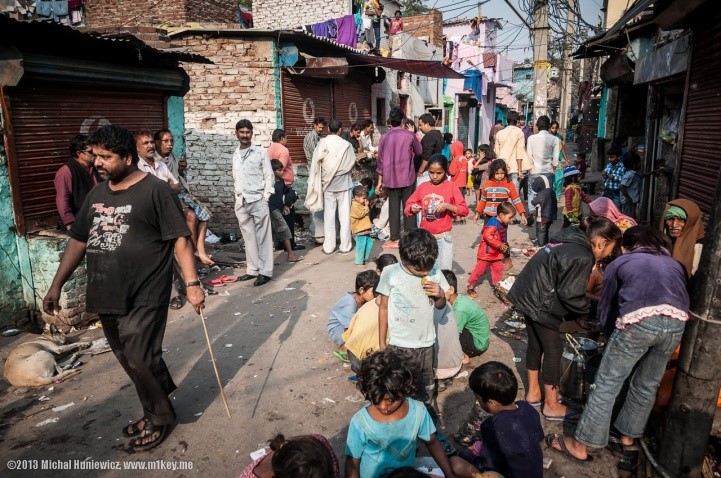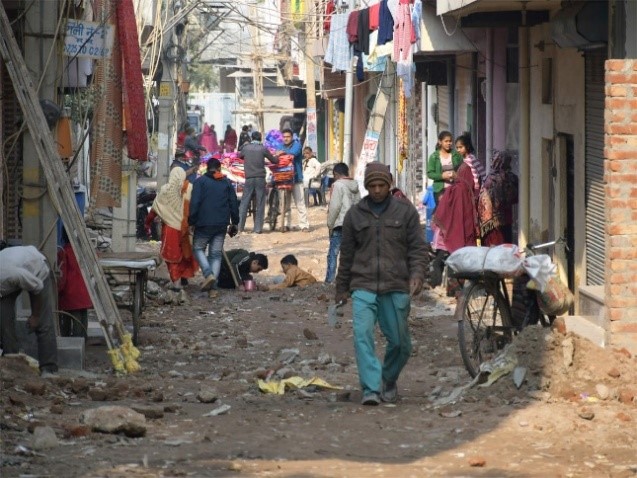Centre makes it easier for owners to get property rights in illegal colonies

Residents in unauthorized colonies lead difficult lives without access to basic necessities like power, water, proper roads, etc. There were 110 unauthorized colonies in Delhi 56 years ago, holding close to 221,000 people. There are now 1,797 of them.
In general, “unauthorized colonies” refers to any area or areas of a city that are not subject to regulation by the relevant authorities, such as the DDA in Delhi or the MRERA in Mumbai, etc.
In cities, these illegal colonies are referred to as slums, blighted regions, shanty towns, etc. A slum is too complicated to be described using just one factor. Slums are a relative term that differs from city to city or nation to nation. A slum household is defined as a home where a group of people live without one or more facilities, such as access to potable water, proper sanitary conditions, electricity, enough living space, the durability of housing, etc., or who live in illegal building structures or informal settlements based on the common characteristics of slums.
Due to the significant population shift to urban regions, these low-income labour classes lack the resources to reach the urban living standards, which are significantly higher than those in rural areas. Slums were created as a result of the impoverished being compelled to dwell on the urban fringes or on marginal land within the metropolis. A few of the many factors that have contributed to the expansion of slums in metropolitan places are the Migration of people from rural to urban areas in search of job opportunities, Poverty, Economic inequalities, Social exclusion, Urbanization, Poor planning of houses or poor city planning, etc.


The lack of such design has calamitous consequences that result in the institution of unauthorized colonies. Inadequate infrastructure denied access to public facilities, no rights to ownership, transfers, mortgages, and properties that are not registered with the registering authorities. There are no title papers for such properties. Banks and other financial institutions refuse to provide credit facilities in relation to assets in unregistered colonies. Non-recognition of sale agreements, general powers of attorney, or will transactions as “transfers” or “sales”; the aforementioned transactions are always regarded as pre-existing sale agreements and are never considered as completed transfers or conveyances.
Residents aren’t the only ones who experience these issues; the government also loses money because the stamp duty and registration fees on the sum specified in the conveyance deed are neither assessed nor paid when properties in unauthorized colonies are transferred under the authority of registered or unregistered Powers of Attorney, Agreements to Sell, Wills, Possession Letters, and other documents, such as those attesting to the payment of consideration.
Hardeep Singh Puri, the Union Minister for Housing and Urban Affairs, introduced the National Capital Territory of Delhi (Recognition of Property Rights of Residents in Unauthorized Colonies) Bill, 2019 on November 26 in the Lok Sabha in order to formally grant ownership rights to more than 40 lakh residents of 1731 unauthorized colonies.
According to the bill, an “Unauthorized colony” is that which includes a contiguous area and for which the regularization of the colony has been identified in accordance with the notification issued by the Delhi Development Authority (DDA) but no permission has been obtained for the approval of the layout plan or building plans.
The primary goal of the measure is to legalise unauthorised colonies while also facilitating development or redevelopment that would enhance current infrastructure, civic amenities, and social amenities, perhaps improving the quality of life for those who live in unauthorised colonies. In unregistered colonies, the private and public land must be divided because of the various registration fees. Unauthorized colonies’ borders must be marked, and a local area plan must be made.
Without pursuing any political gain and without engaging in any confrontation, the goals should be met as quickly as practicable. Similar actions should be done to legalise illegal colonies in other regions of the nation so that everyone can benefit from civic and social justice.
